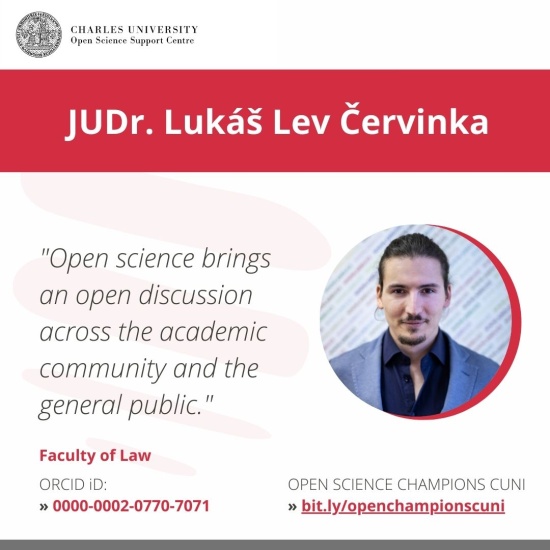During my PhD studies, I have repeatedly encountered situations where I had to ask my colleagues from different faculties or from other universities if they could send me an article from a journal that I do not have access to at the Faculty of Law, because the content of the journal was not purely about law. That was the first time I realized how the closed nature of publishing in the academic world affects research itself. Simply put, if you don’t have access to some area of scientific knowledge, you are forced to focus on another area and to develop your focus and research projects with this factor in mind as well.
On the one hand, it is my effort to produce work and the data on which it is based in such a way that it is truly accessible to anyone, and then also to share my academic interests with the wider public.
In my opinion, open science is the only way not only to develop scientific knowledge, but also to maintain plurality in the academic world. In other words, open discussion is only possible if science itself is open. The moment we confine ourselves to our “national” sciences, narrowly defined fields and their periodicals accessible only to affiliated academics, we unavoidably deprive ourselves of any opportunity for open discussion. Then there is opening science up to the outside world, which is the only way to prevent separating science from reality as well as society’s dwindling trust in science as such and its benefits to society as a whole.
Find someone at your workplace who has already taken this path and will be able to advise and help you find your way. Well, and besides that, above all, deciding to use open science does not mean that one must always publish in open access mode or not publish at all, especially for beginning academics. In short, open science is not a dogma. It is better to try to do your best than to burn out trying to achieve some kind of ideal.
In Czech legal studies, it is primarily a lack of information. A beginning researcher often learns about open science by accident and is not very motivated to go down this path.
An open discussion across the academic community and the general public.

Residency, Invoicing and Correspondence Address
Charles University
Central Library
Ovocný trh 560/5
116 36 Prague 1
Czech Republic
Office Address
José Martího 2 (2nd floor)
160 00 Prague 6
Phone: +420 224 491 839, 172
E-mail: openscience@cuni.cz
Www: openscience.cuni.cz